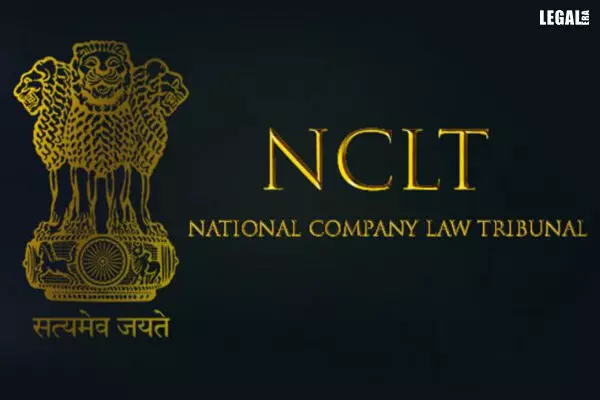- Home
- News
- Articles+
- Aerospace
- AI
- Agriculture
- Alternate Dispute Resolution
- Arbitration & Mediation
- Banking and Finance
- Bankruptcy
- Book Review
- Bribery & Corruption
- Commercial Litigation
- Competition Law
- Conference Reports
- Consumer Products
- Contract
- Corporate Governance
- Corporate Law
- Covid-19
- Cryptocurrency
- Cybersecurity
- Data Protection
- Defence
- Digital Economy
- E-commerce
- Employment Law
- Energy and Natural Resources
- Entertainment and Sports Law
- Environmental Law
- ESG
- FDI
- Food and Beverage
- Gaming
- Health Care
- IBC Diaries
- In Focus
- Inclusion & Diversity
- Insurance Law
- Intellectual Property
- International Law
- IP & Tech Era
- Know the Law
- Labour Laws
- Law & Policy and Regulation
- Litigation
- Litigation Funding
- Manufacturing
- Mergers & Acquisitions
- NFTs
- Privacy
- Private Equity
- Project Finance
- Real Estate
- Risk and Compliance
- Student Corner
- Take On Board
- Tax
- Technology Media and Telecom
- Tributes
- Viewpoint
- Zoom In
- Law Firms
- In-House
- Rankings
- E-Magazine
- Legal Era TV
- Events
- News
- Articles
- Aerospace
- AI
- Agriculture
- Alternate Dispute Resolution
- Arbitration & Mediation
- Banking and Finance
- Bankruptcy
- Book Review
- Bribery & Corruption
- Commercial Litigation
- Competition Law
- Conference Reports
- Consumer Products
- Contract
- Corporate Governance
- Corporate Law
- Covid-19
- Cryptocurrency
- Cybersecurity
- Data Protection
- Defence
- Digital Economy
- E-commerce
- Employment Law
- Energy and Natural Resources
- Entertainment and Sports Law
- Environmental Law
- ESG
- FDI
- Food and Beverage
- Gaming
- Health Care
- IBC Diaries
- In Focus
- Inclusion & Diversity
- Insurance Law
- Intellectual Property
- International Law
- IP & Tech Era
- Know the Law
- Labour Laws
- Law & Policy and Regulation
- Litigation
- Litigation Funding
- Manufacturing
- Mergers & Acquisitions
- NFTs
- Privacy
- Private Equity
- Project Finance
- Real Estate
- Risk and Compliance
- Student Corner
- Take On Board
- Tax
- Technology Media and Telecom
- Tributes
- Viewpoint
- Zoom In
- Law Firms
- In-House
- Rankings
- E-Magazine
- Legal Era TV
- Events
"Fresh Claims cannot be raised once Resolution Plan is approved": NCLT

"Fresh Claims cannot be raised once Resolution Plan is approved": NCLT
once a Resolution Plan is approved, the role of the Resolution Professional ends.
The National Company Law Tribunal (NCLT), Mumbai Bench recently held that claims could not be claimed once the Resolution Plan towards a Corporate Insolvency Resolution Plan is approved.
The Applicant filed the present petition to urge the Tribunal to direct the Respondent to make good for the losses suffered by him due to failure on part of the Respondent to fulfill business commitments.
The Applicant suffered losses of Rs. 5,70,90,760/- because the Respondent failed to supply the agreed quantity of goods.
The facts of the case are that the Applicant made several purchases ordered to the Respondent while the Respondent was under the CIRP process. The appointed Resolution Professional for the process for Respondent 2. Therefore, the said purchase orders were represented by the Resolution Professional.
It was stated by the Applicant that he followed up with the Resolution Professional several times for the consignment of goods, and he was further assured by the Resolution Professional that said order will be completed.
However, the Respondent, as well as the Resolution Professional, did not respond to the emails sent by the Applicant.
On 25 April 2022, the Resolution Professional replied to the Applicant's emails and stated that the Debit Note for December 2021 cannot be completed since the Bishnupur Plant was shut down on 3 October 2021. As a result, all the purchase orders by the Applicant were canceled.
It was urged by the Applicant before the Tribunal that the Respondent be made liable to make good for the losses suffered by the Applicant due to the cancellation of the purchase orders.
In light of the submissions made by the Applicant, the Tribunal noted that the Resolution Plan was already accepted on 7 April 2022.
Placing reliance on the case of Ghanashyam Mishra & Sons Pvt Ltd v Edelweiss Asset Reconstruction Company Ltd., the Tribunal was of the view that it is an established position of law that once a Resolution Plan is approved, the role of the Resolution Professional ends.
It was further observed that "It is not understood in what capacity Resolution Professional could have addressed any communication after the approval of the Resolution Plan on 7th of April, 2022, thereby advising the applicant to do anything as stated in his e-mail dated 25th of April, 2022. It is an established position of law that once the Resolution Plan is approved the role of Resolution Professional comes to an end."
Therefore, the Tribunal held that the Resolution Professional could not have addressed the communication since the Resolution Plan was already approved.
"In view of the admitted position, since the applicant did not approach this Adjudicating Authority when the Resolution Plan was under consideration and had come before this Adjudicating Authority after the approval of the plan, this Adjudicating Authority is of the opinion that he has no right to file any application or seek any relief at this stage" noted the NCLT.
The present application was hereby dismissed.



